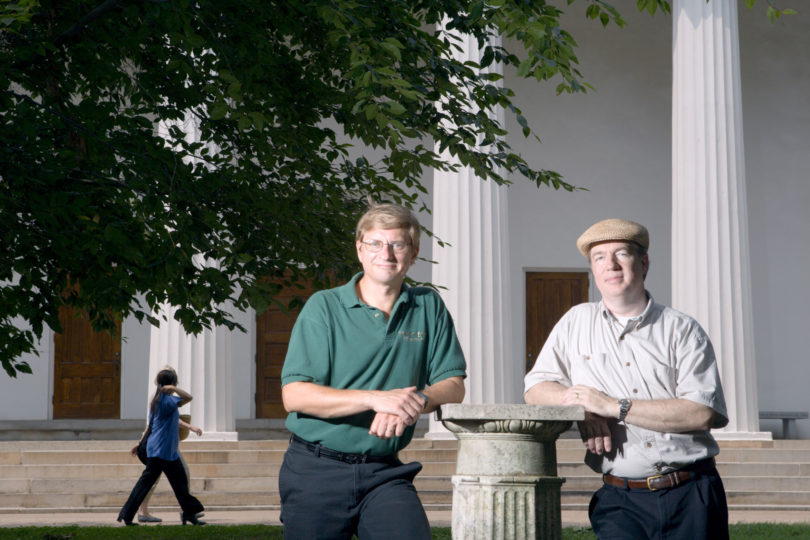The College of Education’s innovative new Web site, Project Promote, offers an online mentoring program to new faculty members and links to many resources in research, teaching and other academic interests.
Nationally, there is nothing quite like it, according to designers Lloyd Rieber and Greg Clinton.
“There are a lot of resources online for UGA faculty related to research and teaching, but up until now they have not been consolidated online in a portal just for faculty. This site puts all these resources together in one place and does so especially with early-career faculty in mind,” Clinton said.
A professor of instructional technology, Rieber is principal investigator of Project Promote. Clinton is a doctoral student in instructional technology and a staff member in UGA’s Center for Teaching and Learning.
The need and initial design for an online faculty resource was conceived by Rieber and the university’s 2004-2005 Senior Teaching Fellows.
“This site does not replace having a mentor within one’s department, but we hope this will enhance and extend the process,” Rieber said.
In the best of circumstances, mentorship programs work well and you need anything else, but unfortunately it doesn’t always work out that way. Mentoring is not something that can be forced, according to Rieber.
New faculty members’ promotion and tenure decisions depend on votes from their senior colleagues, which could make some new professors reluctant to ask sensitive questions. The site alleviates such hesitance and allows new faculty to find guidance outside of their department and immediate mentor, Rieber said.
“An early-career faculty member can log into the site and type in a question. Senior faculty are then alerted that a question has been submitted. Only senior faculty mentors have the ability to answer questions,” Clinton said.
New faculty can also choose to maintain different levels of confidentiality when they ask a question by deciding how much of their identity to disclose.
“The identity of senior faculty is never hidden, so you always know who is answering the question,” Rieber said. “And, since most questions likely do not have one correct answer, this allows multiple points of view to be expressed.”
The Web site is updated as questions are posed and answers provided. Faculty members also get e-mail notification when a response to their question appears. All faculty members can view the questions and answers.
As of now, senior faculty must also be a member of UGA’s Teaching Academy (teachingacademy.uga.edu/) to serve as a mentor on Project Promote. Currently, more than 15 senior faculty members serve as mentors on the site, but the number is expected to increase now that the site has completed its pilot testing and is accessible to all new UGA faculty.
“I think the old adage is true that if one person has the courage to ask a question, many others probably have the same question,” Rieber said. “New faculty members have the most to gain or lose by either not asking critical questions or not getting their questions answered. Our goal is to help them succeed.”
Project Promote is funded by a grant from the university’s Office of the Vice President for Instruction and supported by the Center for Teaching and Learning.







